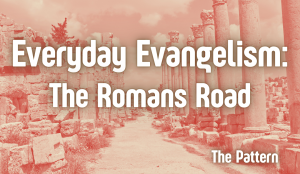
Everyday Evangelism: The Romans Road

The post Everyday Evangelism: The Romans Road appeared first on Kingdom Revolution.


The post Everyday Evangelism: The Romans Road appeared first on Kingdom Revolution.


The post Here I Am, Send Me Part 4: Isaiah’s Desire appeared first on Kingdom Revolution.


The post Here I Am, Send Me Part 3: Pushing Through (Faith) appeared first on Kingdom Revolution.


The post Here I Am, Send Me Part 2: Faith and Action appeared first on Kingdom Revolution.


The post Gratitude: A Call to Worship appeared first on Kingdom Revolution.


The post Giving and the Harvest appeared first on Kingdom Revolution.